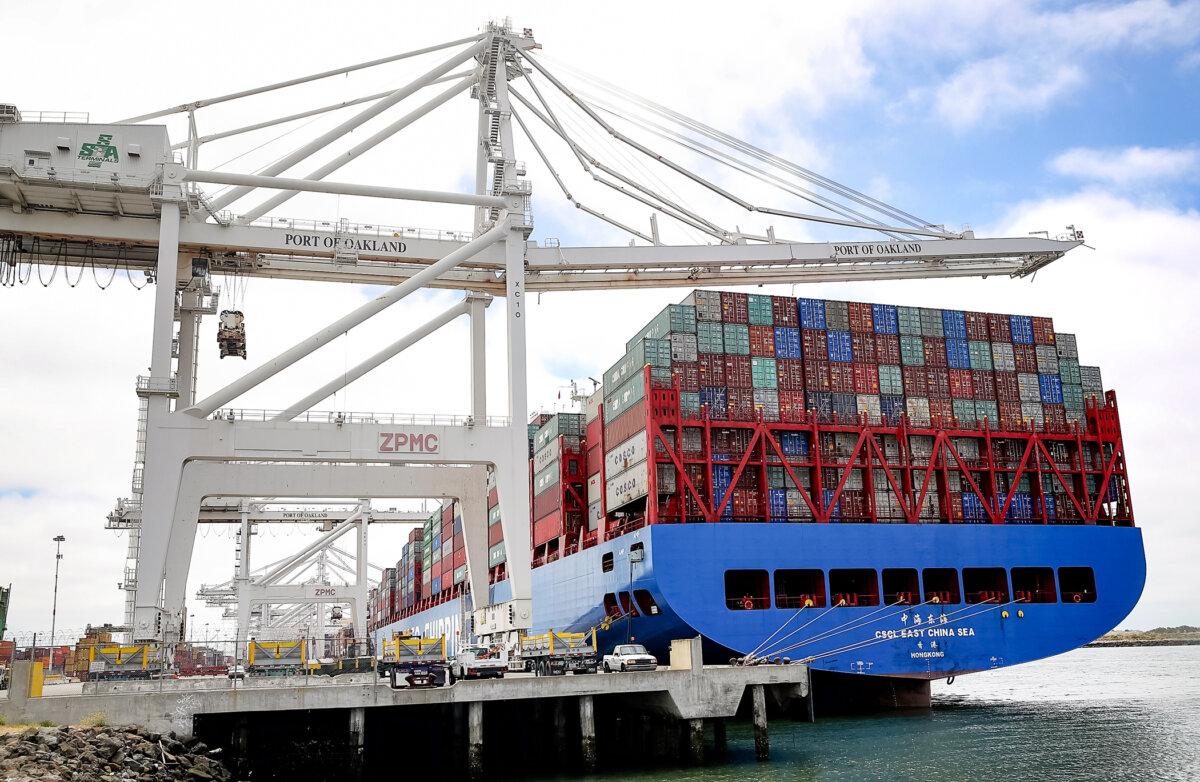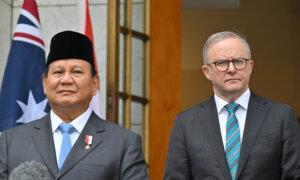The president-elect’s campaign pledges are a ‘negotiating tactic’ for leverage in trade talks—and they may already be working, a think-tank analyst suggests.
And it may be working already.
European Commission President Ursula von der Leyen suggested on Nov. 8 that European Union (EU) nations can buy more liquified natural gas (LNG) from the United States to avoid tariffs.
“Why not replace it by American LNG, which is cheaper for us and brings down our energy prices?” she asked.
Posen said this is exactly what Trump’s team wants to achieve.
“The ideal outcome for the Trump administration is they’ve made this threat, a set of threats, but they don’t actually have to implement them, and they get these goodies,” he said.
In the short term, Posen said, some nations may acquiesce. “They’ll say: ‘Okay, we don’t want to be on the bad side of the U.S. We don’t want a bad side of a President Trump.’ But in [the] medium-term, two to four or five years out, I think the reverberations could be quite large.”
Responses from “like-minded U.S. allies” will differ from those from China, Mexico, and nonaligned nations, such as India and Indonesia, he said.
Allies are “probably just going to try to make nice with Trump: ‘We’re going to be aligned with the U.S. on national security and, therefore, against China,’” Posen said. “We should just … try to be on the inside of a ‘Fortress America economy’ and grow with them.”
There are at least two problems with this scenario, he said. “Getting these goodies is really not necessarily going to solve a bunch of problems. A number of people close to the president-elect believe trade deficits are really a big deal.
“These measures are likely to actually increase U.S. trade deficits because they’ll drive up the dollar, drive up inflation.”
Posen said the second problem is that “this is not a one-round game,“ adding that ”once this happens … the question is, how do economies adapt and how do they cope?”
“Maybe in that sense … people start building the U.S. out. That’s something we’re going to watch,” he said.

The CSCL East China Sea container ship sits in a berth at the Port of Oakland in Oakland, Calif., on June 20, 2018. A 2023 study estimated that under Section 301 of the Trade Act of 1974, tariffs decreased imports from China by 13 percent each year from 2018 to 2021. Justin Sullivan/Getty Images
‘Asymmetric Trade Warfare’
Without an effort to renegotiate trade deals before imposing “across-the-board” tariffs, which also would slap a 25-to-100 percent fee on imports from Mexico, “I think the Trump administration is underestimating how other countries might react,” he said.
A 60-percent tariff on imports from China will spur “asymmetric trade warfare,” Posen said.
“If the U.S. says, ‘Well, we don’t want steel, we don’t want batteries, we don’t want EVs from China’ … then the Chinese can say, ‘Well, we don’t want Hollywood movies, we don’t want American video games, we don’t want American accounting firms,’” he said.
“I represent Hollywood. Let me give you an example of my constituent’s issues with China,” he said. “Hollywood is told they can only get 40 movies into China each year. That means if you make a movie critical of China, that doesn’t go to China.
“But it also means that none of your movies are going to China. They control it and do it with lobbyists, and that means China can control what Congress does.”
But Posen said China will remain “a special case,” noting Elon Musk “is going around saying to people in China: ‘Count on me. I’ll keep things from getting out of hand.’”
He said Mexico is also “a special case, unfortunately for Mexico.”
“There’s so many issues where the Trump administration is going to play hardball, on the border, on drugs, on their new judiciary reforms, on their energy deregulation, or lack thereof, in addition to blocking Chinese investment in Mexico and then reviewing [the United States–Mexico–Canada trade pact].”
If the Trump administration imposes a 25-to-100 percent tariff, Posen said, “Mexico is going to be in trouble.”
“I’m not sure how they’re going to react,” he said.
The Trump administration may also not foresee responses from “the big emerging markets” such as India, Indonesia, Brazil, Poland, Turkey, Nigeria, and South Africa, he said.
“The Biden administration did a terrible job of engaging with these countries, kept using rhetoric like, ‘You’re our friends … our allies,’ and didn’t offer anything,” Posen said.
Paying lip service to “friend-shoring” is not enough, he said, citing Indonesia’s recent deal with China as a lost opportunity unlikely to be reversed for a generation.
“I think we’re going to see a lot of that. And so these big emerging-market countries with geopolitical strength are going to actually do pretty well, and they’re probably going to successfully play off the U.S. and China,” Posen said.
Original News Source Link – Epoch Times
Running For Office? Conservative Campaign Consulting – Election Day Strategies!


